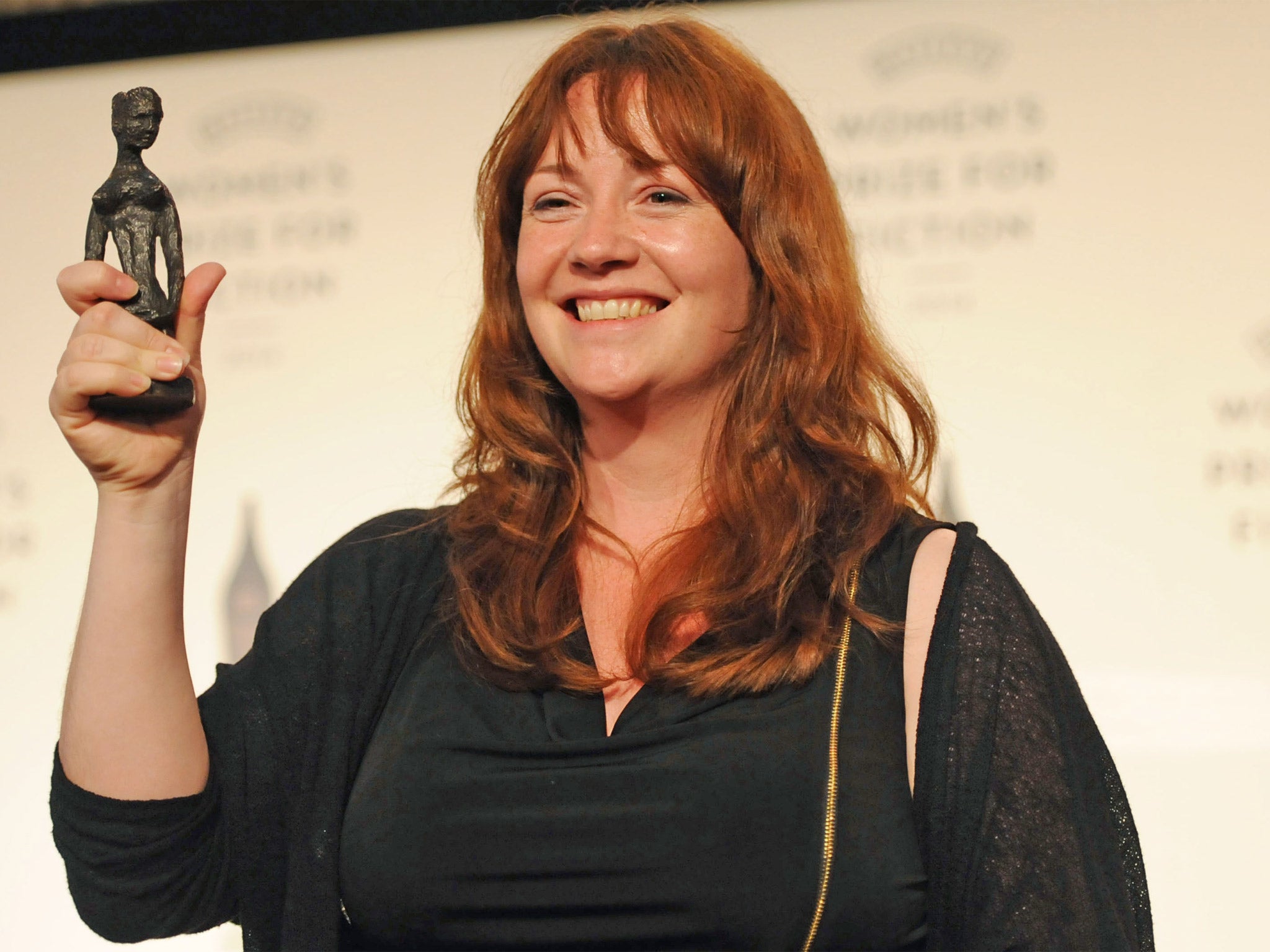Galley Beggar and Eimear McBride: The publisher that took a chance on a half-formed thing – and won the jackpot
The Baileys prize transformed the life of not only Eimear McBride but also the tiny firm that believed in her

Your support helps us to tell the story
From reproductive rights to climate change to Big Tech, The Independent is on the ground when the story is developing. Whether it's investigating the financials of Elon Musk's pro-Trump PAC or producing our latest documentary, 'The A Word', which shines a light on the American women fighting for reproductive rights, we know how important it is to parse out the facts from the messaging.
At such a critical moment in US history, we need reporters on the ground. Your donation allows us to keep sending journalists to speak to both sides of the story.
The Independent is trusted by Americans across the entire political spectrum. And unlike many other quality news outlets, we choose not to lock Americans out of our reporting and analysis with paywalls. We believe quality journalism should be available to everyone, paid for by those who can afford it.
Your support makes all the difference.The experimental debut novel A Girl is A Half-Formed Thing has changed the fortunes of Eimear McBride, who has become the most celebrated writer of the year.
But a small independent publisher, until recently run out of a bookshop in Norwich, is the other big winner from its success, after backing the book when no one else would.
Now a company that was not even operational when it took on McBride’s story has had its future secured after seeing the book soar up the Amazon best-seller charts and win four awards.
Sam Jordison, who runs Galley Beggar Press with his wife Eloise Millar, said “security in publishing is not something easily achieved but this helps with the next few print runs”.
The publisher’s co-founder, Henry Layte, said that “one minute we were three people sitting in a pub wondering what to do and within six months we had this on our hands”.
After McBride won the Baileys Women’s Prize for Fiction last month, everything changed for Galley Beggar, Mr Layte said. “The book started selling in its thousands rather than hundreds. And Galley started receiving manuscripts in their thousands.”
The path to signing the book was not smooth. Mr Layte met William Galinsky, McBride’s husband, in Norwich and he mentioned she had written a novel. “He tried to put me in touch with Eimear but forgot to press ‘send’ on his email and thought he had done it.”
Months after, when Mr Layte followed up, he was told that Ms McBride was “livid because they thought I hadn’t responded, but I never got it. After her 10-year wait she just thought I was another arrogant publisher. It was not an auspicious start.”
Mr Layte read the manuscript on holiday. “I thought this was one of the most important books I had ever read. It had the same effect on me as when I first read Samuel Beckett. It was a game-changer as far as what could be done.”
Yet the doubts began to creep in. “It had been turned down for nine years, and I started thinking: ‘What if it’s rubbish. What if everyone else is right and it’s unpublishable?’ Though I was convinced that wasn’t the case.”
The company was not even operational at that stage and despite Mr Layte’s praise when they met in 2011, the author thought little more about its chances of being published.
Galley published its first book, The White Goddess: An Encounter by Simon Gough, in August 2012 and a few months later they approached McBride about publishing her novel.
Mr Layte said: “It was very much a cottage industry. We borrowed the money and winged it and hoped it worked.”
A Girl is a Half-Formed Thing was published in June 2013 with a view to selling the initial print run of 1,000.
A review in the Times Literary Supplement started the ball rolling. The author won the debut Goldsmiths Prize, and the Kerry Group Irish Fiction Award and toured Europe and Australia. She is preparing to head off to the US.
Faber stepped in to co-publish the book and the moment it won the Baileys prize, Faber printed 25,000 more copies.
Mr Layte said: “This has been astronomically quick. This time a year ago the book was for sale in my shop and nowhere else, and no one knew who she was.”
Join our commenting forum
Join thought-provoking conversations, follow other Independent readers and see their replies
Comments